Libby Denkmann
Host, Soundside
About
Libby Denkmann has covered veterans' issues, homelessness, and local politics during her radio journalism career. She became the host of KUOW's Soundside in November 2021. Previously she was a producer, reporter, anchor, and host for stations KIRO, KFI, and KPCC in Seattle and Los Angeles. During a yearlong hiatus from journalism in 2011, she worked as a congressional staffer in Washington, D.C.. Libby was born in Seattle, grew up on the eastside, and graduated from the University of Washington. Her favorite things include soccer, video games, and her dog, Monty.
Location: Seattle
Languages: English, limited Japanese and Portuguese
Pronouns: she/her
Podcasts
Stories
-
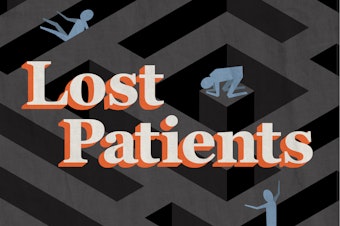
Health Care
What do the graves around Northern State hospital tell us about the Lost Patients who lived there?
Soundside host Libby Denkmann talks with Northern State Hospital historian John Horne about some of the history surrounding the location & the gravestones he's found.
-

Government
Facing a $230 million deficit, Seattle mulls options to close the gap
Five new members of Seattle’s City Council said during their campaigns that they would like to audit the city budget for waste and redundancies --before raising or adding new taxes. But now, as a $230 million city budget deficit looms, the realities of a time-consuming and expensive audit process are leading those new councilmembers to back off the idea. That means they likely have to take a hard look at something they did not want to do: add new revenue through taxes.
-
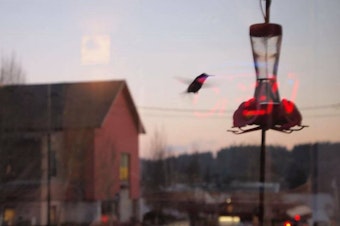
Environment
Hear it again: Documenting local hummingbirds
Soundside Producer Hans Anderson talks to Burke Museum Curator of Birds Alejandro Rico Guevera about the local hummingbird population, in a story that originally aired in January.
-
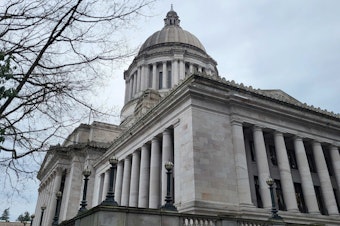
Government
Is Washington state's public records act losing its power?
Public records belong to the people. That was the argument made in 1972 that spurred the Washington Public Records Act into law, opening virtually every government document to the public. But that law — widely considered one of the strongest public records laws in the country — is losing some of its teeth as legislators pile on more exemptions, according to a report recently published by the Washington Coalition for Open Government.
-

Business
Could Boeing's leadership shakeup make more room for labor?
In the wake of Boeing CEO Dave Calhoun's resignation announcement, some industry insiders say the company's labor should have a bigger seat at the table.
-
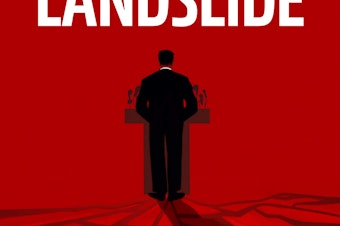
Politics
How the 1976 election ushered in the American partisan divide
To understand the 2024 presidential race, you need go back to 1976 — at least that’s the case Ben Bradford makes in Landslide, a new podcast from WFAE, NPR, and Nuanced Tales.
-
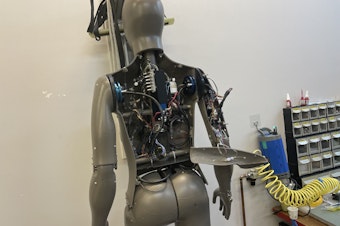
Technology
How sweating manikins can help us prepare for a warming world
Put simply, humans are complicated – and our feedback is subjective. Put a jacket on someone and ask them if it's warm, cold, breezy or stuffy, and you'll get a range of largely unscientific answers. To get quality data – the kind that is valuable for companies – you need a sophisticated tool. A tool that can sweat.
-

Health
Should mental health treatment be forced if someone needs care, but refuses it?
A new podcast from KUOW and The Seattle Times sets out to explore why so many people with severe mental illnesses — who make up 7% of the state's population — go untreated in Washington. Episode 2 of Lost Patients focuses on "involuntary commitment," a legal mechanism that allows someone to be forced into medical treatment if they are deemed a danger to themselves, a danger to others, or are gravely disabled.
-
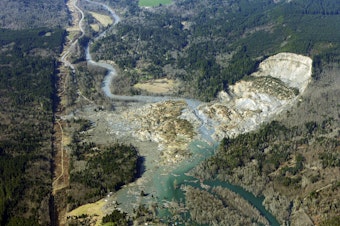
Environment
What have we learned in the decade since the deadliest landslide in U.S. history?
The Oso landslide remains the deadliest landslide in US history. Since the disaster, how have local governments responded to the still present risk of landslides?
-

Business
Boeing urges employees to 'speak up' about product safety. But what impact does a whistleblower really have?
Former Boeing Quality Manager John Barnett's recent death has renewed conversations about whistleblower safety and impact.

